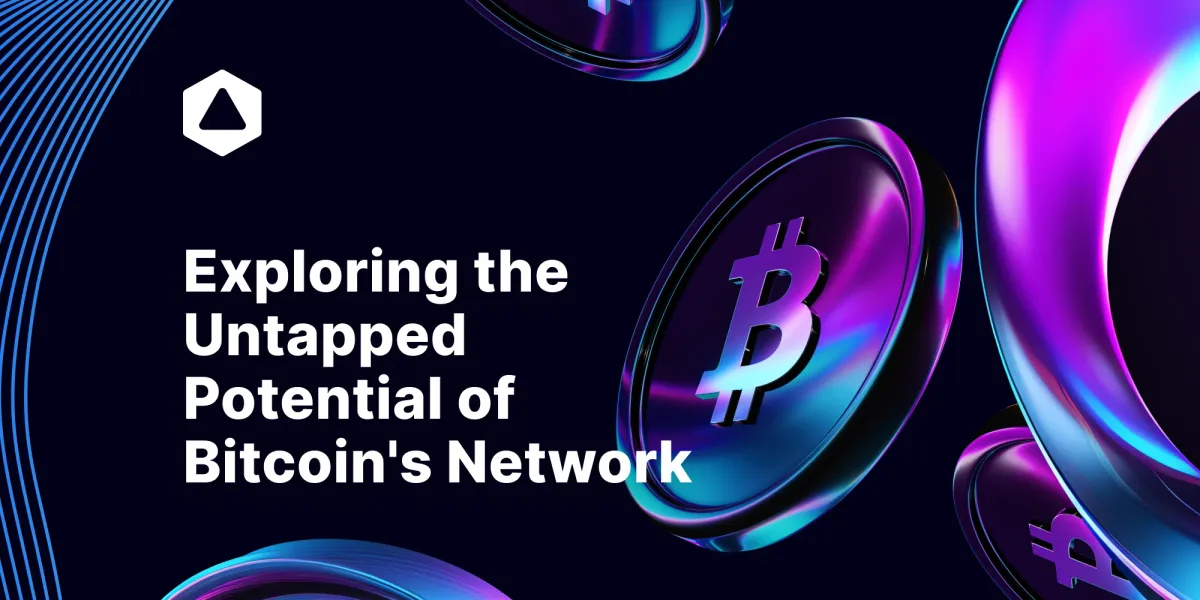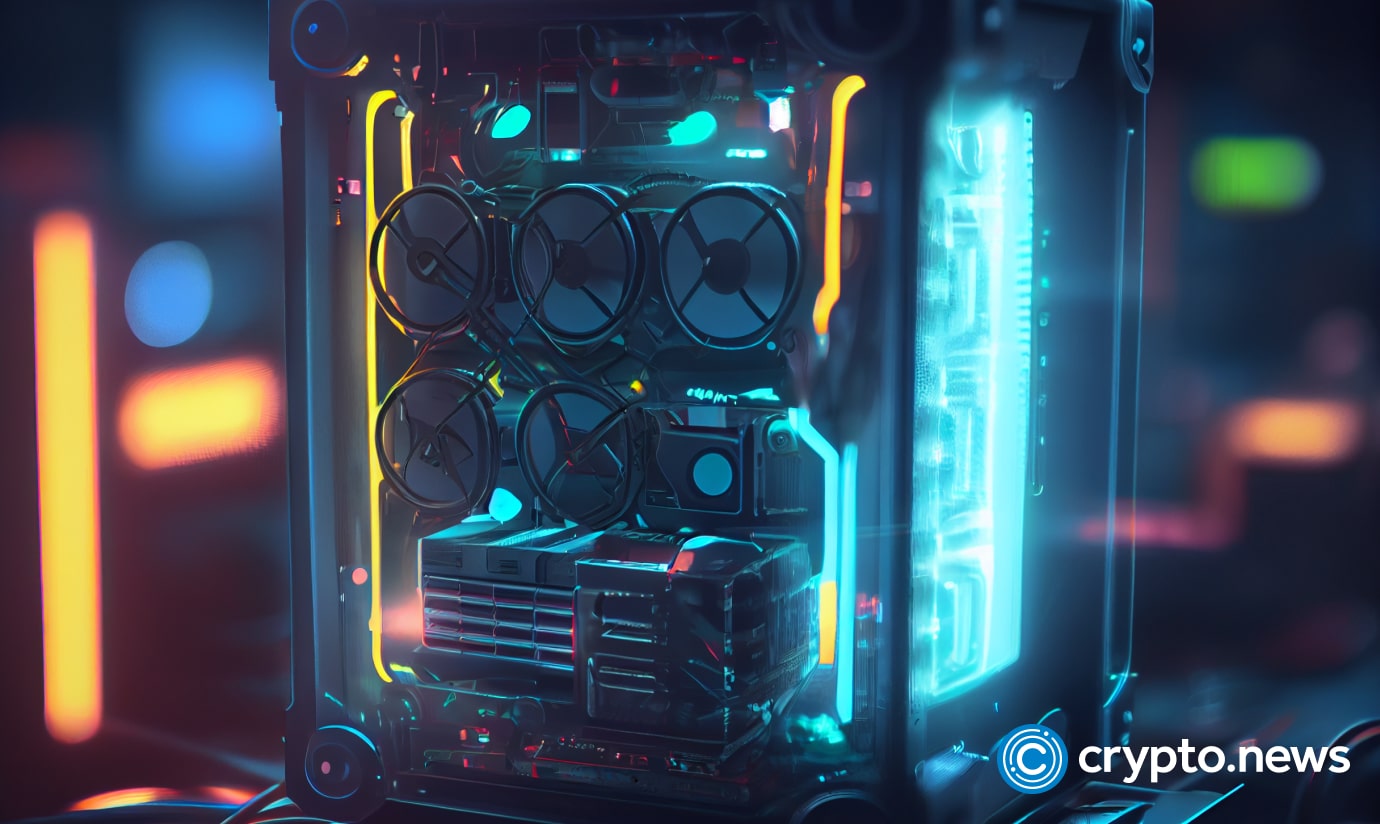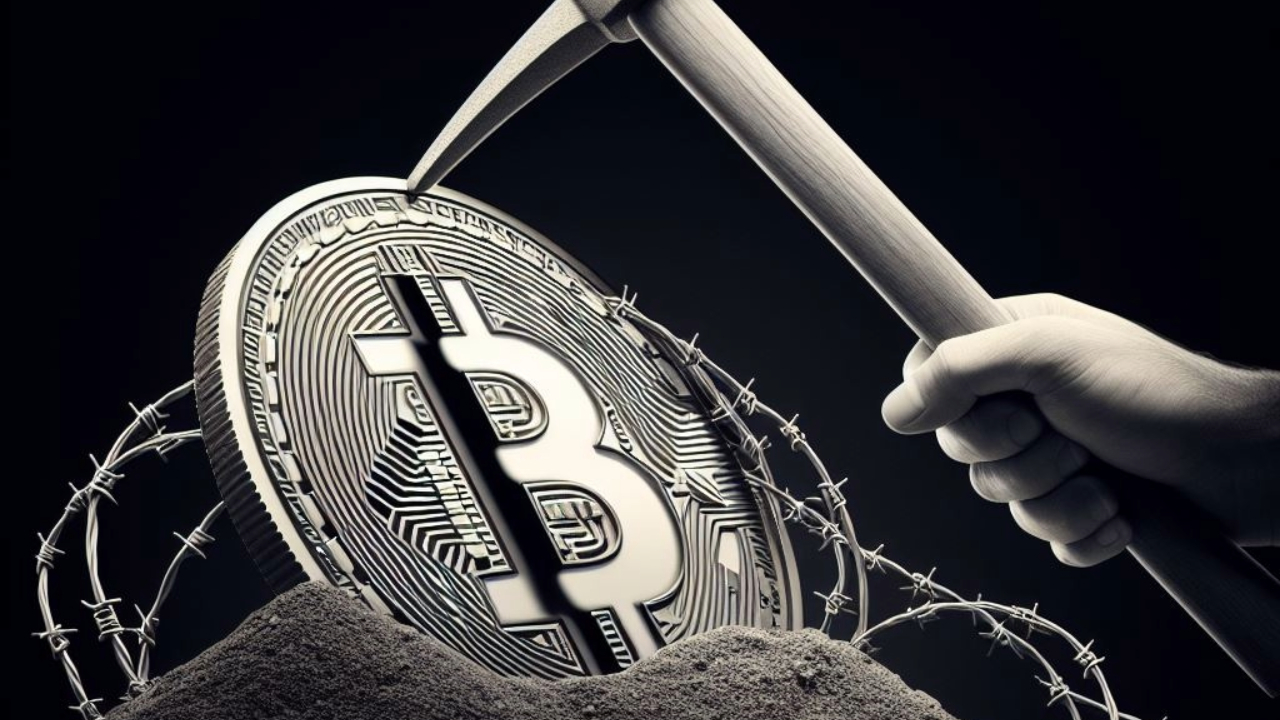Examining the Oversight of Bitcoin Mining Pools: Who Guards Our Guardians?
Exploring the major Bitcoin mining pools and how their operations contribute to the network's security, with a look at potential regulatory risks to decentralization.

Ever wonder why Bitcoin is the most secure blockchain to ever enter cyberspace? Well, this all comes down to how the Bitcoin network operates and which components are playing their part. In this article, we'll explore each contributor to Bitcoin's safest network and examine the mining pools and prerequisites for joining them. As the saying goes, 'you are as secure as your weakest link.'
Bitcoin Mining Recap
To recap, Bitcoin mining involves high-powered computer hardware and software working together to solve complex cryptographic math problems and verify transactions on the bitcoin blockchain through a process called proof-of-work consensus.
For example, miners configure specialized machines like application-specific integrated circuits (ASICs) that rapidly generate random hashes in an effort to solve these puzzles.
Miners who are first to solve a puzzle and add the next block to the blockchain are rewarded with newly minted bitcoin and transaction fees. This incentive structure secures the network by disincentivizing malicious actors from altering past transactions.
As a result, large-scale mining operations have come to dominate due to economies of scale with specialized facilities housing thousands of ASIC machines working in concert via mechanisms like mining pools that distribute block rewards proportionally based on computing power provided.
The Biggest Mining Pools Mining bitcoin
If we take a look at the biggest players in town, when considering bitcoin mining we see that Foundry USA leads the Bitcoin mining industry with an impressive 31.65% of the overall market share.
In second and third place are AntPool and F2Pool, with market shares of 22.88% and 14.01% respectively. ViaBTC and Binance Pool also follow closely.
These figures are based on the latest data available as of January 2024 that can be found on hashrate index and can change over time, as mining bitcoin is highly competitive.
If we take a look at where these companies mining bitcoin are located, we see a remarkable trend, with the majority of cryptocurrency companies being headquartered in China (55.6%). The USA only houses 38.0% of bitcoin miners. And only a small portion originate from other locations around the world (3.4%).
If we think about the reach of the SEC and its belief that it still has regulatory power in this space, even though the companies themselves are based abroad, it is simply a mirage on their part.
"The world is not a void waiting to be filled by SEC regulation," - Binance lawyer to Judge Amy Berman Jackson.
Why is Hashrate important?
Hash power is a computational resource used to secure and process transactions on a blockchain network. It refers to the amount of processing and computing power given to the network through mining.
A hash is a fixed-length alphanumeric code that represents any length of words, messages, or data.
Higher hash rates mean it's harder to alter the blockchain, which is what gives Bitcoin its value - the fact that it is immutable. Hash rate is a key dimension of blockchain network security because it represents how much energy is expended to secure the network.
Leveraging Bitcoins Security through Bitfinity EVM
The Bitfinity EVM opens up promising possibilities for leveraging Bitcoin's unparalleled security. As an EVM compatible with Ethereum applications, it allows smart contracts and dApps built on Ethereum to access the robust security of Bitcoin's proof-of-work without compromising functionality.
By deploying Ethereum applications on Bitfinity, users can take advantage of Bitcoin's significantly larger hash power and censorship resistance. Want to learn more? Check out our article here.👇

What is a 51% attack?
A 51% attack is a type of attack on a blockchain network where a single person (highly unlikely) or group gains control of over 50% of the network's hash power. If this happens, the attacker(s) could prevent confirming new transactions, halt the network, and even roll back some transactions that were completed while they were in control. Which is the last thing we want. It would essentially mean that Bitcoin's ‘uncrackability’ would be compromised and it turns out to be centrally owned.
In-Depth Analysis of Bitcoin Mining Pools
Foundry
Foundry is a company that was founded in October 2019 that provides digital asset mining and staking services. It is the biggest mining pool known to date. As a subsidiary of Digital Currency Group (DCG), which is also the parent company of CoinDesk, Grayscale and the now bankrupt Genesis, all household names in crypto.
Foundry is known for its Foundry USA Pool, which is a US-based institutional grade mining pool. A fun fact: the term "Foundry" also has a historical association with the metal casting industry, where metal castings are produced by melting metal into a liquid, pouring it into a mold, and removing the mold after the metal has solidified. We hope Foundry is as solid as its name.
To join the Foundry USA Pool, you can visit their website and follow the instructions to create an account. All miners, big and small, are welcome to join, with a focus on large miners.
According to the Foundry website, their KYC process is required for all customers and business partners as part of their onboarding compliance requirements.
Antpool
Antpool is the second largest, well-known cryptocurrency mining pool. Established in 2014, it has since provided and supported the mining of many different cryptocurrencies including bitcoin. Different earnings modes are offered such as
- PPS (Pay Per Share): The pool operator pays miners a fixed amount for each share contribution, regardless of whether that share leads to a block reward.
- PPS+ (Proportional Pay Per Share): Similar to PPS but incorporates a bonus if shares do result in a block reward being earned by the pool.
- PPLNS (Pay Per Last N Shares): Miners are rewarded based on the number of newly generated shares over the last few hours (N is a predetermined number).
Antpool does not require any account verification process. After registering on the Antpool website by providing an email address, you can create a worker account by adding a sub-account within your Antpool account.
However, for institutional accounts, Antpool requires additional verification steps, as outlined in their institutional KYC user guide.

F2Pool
F2Pool ranks third and is a leading global cryptocurrency mining pool that serves miners in over 100 countries. It provides stable mining services with a low latency rate for a wide range of cryptocurrencies, including Bitcoin, Ethereum, Litecoin, Dogecoin, and many others.
F2Pool, also known as "Discus Fish," is a Chinese mining pool that was established on May 5, 2013. The name "Discus Fish" originated from the pool's coinbase signature, which is 七彩神仙鱼 (Discus Fish), the nickname of one of the operators.
The KYC (Know Your Customer) process for F2Pool appears to be required for specific activities, such as receiving incentivized testnet rewards. Users are instructed to complete the KYC process.
F2Pool came under recent fire after acknowledging it had been censoring transactions from addresses flagged by OFAC (Office of Foreign Assets Control) sanctions lists. After a Bitcoin developer discovered evidence of filtering, F2Pool co-founder Chun Wang admitted the pool applied an OFAC compliance filter. Wang initially doubled down, claiming he had a right not to process transactions from "criminals, dictators and terrorists."

ViaBTC
ViaBTC is another global cryptocurrency mining pool that provides safe and stable cryptocurrency mining services for over one million users in 130+ countries/regions around the world.
The company was founded in May 2016 and offers mining services for dozens of mainstream cryptocurrencies, including Bitcoin. Rumors have surfaced that after KYC procedures, which are becoming the norm, ViaBTC may ask for your ID, hardware location, and even electricity bill. This is very unsettling for true bitcoiners who want to remain as decentralized and anonymous as ever.
Binance
Binance, which anybody that has not lived under a rock has heard about, offers a Bitcoin mining pool service that allows users to mine Bitcoin in its ‘Binance Crypto Mining Pool’.
The payout reward scheme used on Binance Pool is PPS+, which is a Pay Per Last N Shares model with a fee ranging from 0.5% to 2.5%.
To join Binance's crypto mining pool, you can follow the steps below:
- Register for a Mining Account: Visit the Binance Pool website and create a mining account
- Configure Your Miner: Set up your mining hardware to connect to the Binance pool by entering the pool's URL and port number, as well as your mining worker name and password
- Start Mining: Once your hardware is configured, you can start mining by running the mining software, which will communicate with the Binance pool and start sending shares to the pool
As we know, Binance has recently made a deal with the SEC, the largest plea deal in the history of finance, marking an end of an era for many true crypto users and speculators. If you want to learn more about that agreement, check our article here.👇

Controversial Conclusion
If we take a look at the results we just listed, we see that over 55% of Bitcoin's hashing power is controlled by pools based in China. So theoretically, if the Chinese government were able to exert control over these pools, it could allow them to potentially carry out a 51% attack on the Bitcoin network.
Even worse is when we see that KYC procedures could entail the hidden hands of the government regulating the whole industry. While regulations should aim to promote transparency and prevent illicit behavior, it also centralizes control over the pools.
This centralized control over mining pools goes against the decentralized nature of Bitcoin and opens up potential vulnerabilities. Having such a large portion of hashing power concentrated in regulated entities reduces Bitcoin's resistance to censorship and manipulation. But currently there isn't a cloud in the sky so we can carry on.

Connect with Bitfinity Network
Bitfinity Wallet | Bitfinity Network | Twitter | Telegram | Discord | Github

*Important Disclaimer: While every effort is made on this website to provide accurate information, any opinions expressed or information disseminated do not necessarily reflect the views of Bitfinity itself. The information provided here is for general informational purposes only and should not be considered as financial advice.





Comments ()